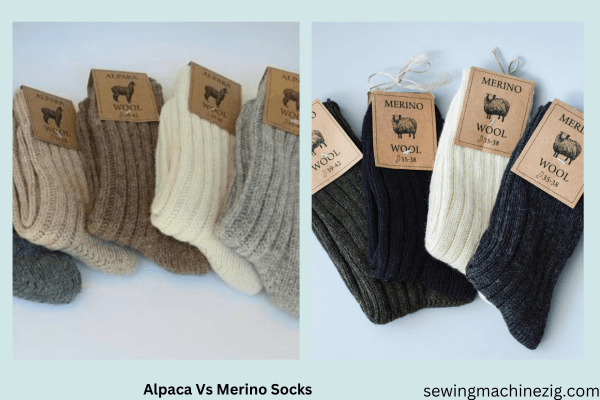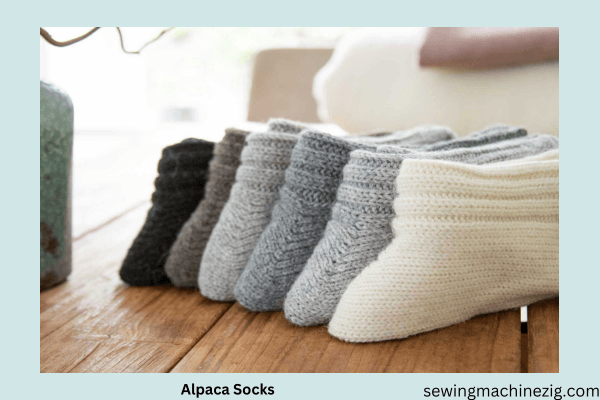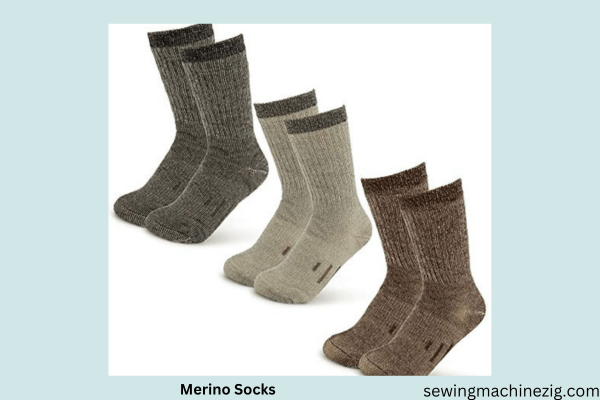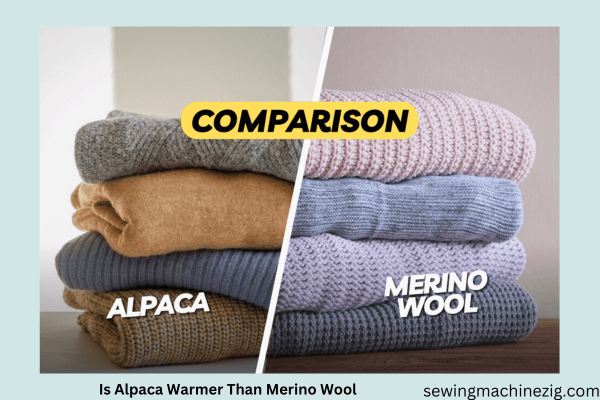
When it comes to choosing the perfect pair of socks for ultimate comfort and warmth, alpaca vs merino socks are two popular options that stand out. Alpaca wool comes from the fleece of alpacas, while merino wool is derived from the merino sheep breed. Both types of wool offer unique qualities that make them highly sought after in the world of socks.
Whether you’re seeking cozy warmth for cold winter days, moisture management for outdoor activities, or a comfortable everyday sock, delving into the details of alpaca vs merino socks will provide valuable insights into their respective qualities. From their natural fibers to their exceptional performance, this exploration will assist you in finding the perfect socks to keep your feet comfortable, dry, and protected in any situation.
In this article, we will explore the distinctions between alpaca vs merino socks, considering factors such as softness, insulation, moisture-wicking capabilities, durability, and overall performance. Understanding the characteristics and benefits of each type of wool can help you make an informed decision and select the ideal socks for your specific needs.
Here Are The Key Features Of Alpaca Socks Apart:
Alpaca Socks:

1. Softness And Comfort:
Alpaca wool is known for its incredible softness, often compared to cashmere or silk. Alpaca socks provide a gentle and cozy sensation against the skin, making them a delight to wear.
2. Insulation And Temperature Regulation:
Alpaca fibers have excellent insulation properties, providing natural warmth in cold weather. At the same time, they allow for breathability, preventing overheating and maintaining a comfortable temperature for your feet.
3. Moisture-wicking And Odor Resistance:
Alpaca wool is naturally moisture-wicking, meaning it effectively absorbs and wicks away moisture from the skin. This helps keep your feet dry and prevents the buildup of odor-causing bacteria.
4. Hypoallergenic Properties:
Alpaca socks are hypoallergenic and suitable for individuals with sensitive skin or allergies. The fibers are less likely to cause irritation or itching, offering a comfortable experience for those with wool sensitivities.
5. Durability And Longevity:
Alpaca wool is known for its strength and durability, making alpaca socks highly resistant to wear and tear. They can withstand regular use and maintain their quality over time, providing long-lasting comfort and warmth.
Here are the key features that make Merino socks stand out:
Merino Socks:

1. Softness And Fine Texture:
Merino wool is renowned for its softness and fine texture. Merino socks offer a gentle and luxurious feel against the skin, making them comfortable to wear for extended periods.
2. Insulation And Temperature Regulation:
Merino fibers have excellent insulation properties, providing warmth in cold conditions. They also offer natural breathability, allowing heat to escape in warmer weather and preventing overheating.
3. Moisture-wicking And Quick Drying:
Merino wool has inherent moisture-wicking capabilities, effectively pulling moisture away from the skin and allowing it to evaporate quickly. This keeps your feet dry and helps regulate body temperature.
4. Odor Resistance:
Merino wool has natural antimicrobial properties, which inhibit the growth of odor-causing bacteria. This helps keep Merino socks fresh and odor-free, even after prolonged use.
5. Breathability And Air Circulation:
Merino wool is highly breathable, allowing for excellent airflow around your feet. This helps prevent the buildup of moisture and maintains a comfortable and dry environment.
In summary, alpaca socks offer exceptional softness, insulation, moisture-wicking capabilities, hypoallergenic properties, and durability. Merino socks, on the other hand, provide softness, insulation, moisture-wicking, odor resistance, and breathability. In alpaca vs merino socks, both types have their unique features, and the choice between alpaca and merino socks depends on your personal preferences, desired level of softness, insulation needs, and specific activities or environments in which you will be wearing them.
Is Alpaca Warmer Than Merino Wool

Alpaca wool is generally considered to be warmer than merino wool. Alpaca fibers have superior insulation properties due to their hollow structure, which helps to trap more warmth. The air pockets within alpaca wool fibers create a natural barrier against the cold, providing excellent heat retention. Merino wool also offers good insulation but may not be as warm as alpaca.
However, both alpaca vs merino socks which can be made from wool are known for their ability to regulate body temperature, wick away moisture, and provide comfort in varying weather conditions. The specific warmth of a garment will also depend on its thickness and density. Ultimately, if you’re seeking maximum warmth, alpaca wool would be a favorable choice.
Which Is Better Merino Or Alpaca
The question of whether merino or alpaca is better is subjective and depends on individual preferences and needs. Well in alpaca vs merino socks, both materials have their own unique qualities and advantages. Here are some key points to consider:
1. Merino:
- Excellent warmth and insulation properties, though slightly less warm than alpaca.
- Highly breathable and moisture-wicking, making it ideal for various activities and climates.
- Soft and comfortable against the skin, with a fine texture.
- Durable and long-lasting, with the ability to maintain its shape and quality over time.
- Widely available and generally more affordable compared to alpaca.
2. Alpaca:
- Exceptional warmth and insulation, make it ideal for colder climates and winter wear.
- Luxuriously soft and gentle against the skin, offering a premium wearing experience.
- Hypoallergenic, making it a suitable choice for those with wool sensitivities or allergies.
- Moisture-wicking and temperature-regulating properties contribute to comfort in different conditions.
- Known for its durability, ensuring that alpaca garments can withstand regular use.
Ultimately, the better choice between alpaca vs merino socks depends on your specific requirements, such as desired warmth, softness, breathability, and budget. Consider your priorities and personal preferences when making a decision.
Is Alpaca Less Itchy Than Merino
Yes, alpaca wool is generally considered to be less itchy than merino wool. Alpaca fibers have a smooth texture and contain less lanolin, which is the natural oil found in sheep’s wool and can contribute to itchiness. This makes alpaca wool a suitable choice for individuals with sensitive skin or those who are prone to wool allergies.
On the other hand, merino wool is known for its fine fibers and softness, but some people with particularly sensitive skin may still experience mild itchiness or irritation when wearing it, especially if the wool is of lower quality or has not been properly processed.
It’s important to note in alpaca vs merino socks or in any fabric, that individual sensitivity to wool can vary, and what may cause discomfort for one person may not affect another. If you have a known sensitivity to wool or are prone to itchiness, alpaca wool is generally considered a safer option in terms of minimizing itchiness and providing a comfortable wearing experience.
What Are The Disadvantages Of Alpaca Wool
Alpaca wool is highly regarded for its luxurious softness, warmth, and other desirable qualities. However, like any material, it also has its disadvantages. Understanding alpaca vs merino socks disadvantages for alpaca wool drawbacks can help individuals make informed choices when considering alpaca wool products. While alpaca wool is generally less itchy than other types of wool, some individuals with extreme sensitivities may still experience mild discomfort.
Additionally, alpaca wool is more expensive in alpaca vs merino socks or any other fabric wool, compared to other wool types due to its rarity and the specialized care required for raising alpacas.
Its availability may also be limited in certain regions, making it less accessible to some consumers. It’s important to weigh these disadvantages against the unique benefits of alpaca wool to determine if it aligns with your preferences and requirements.
Exploring Disadvantages Of Alpaca Wool
1. Cost:
Alpaca wool tends to be more expensive than other types of wool due to several factors. Alpacas are relatively rare animals, and their wool production is limited, making the supply of alpaca wool lower compared to more common wool varieties. Additionally, the care required for raising alpacas, including their feeding and shearing, contributes to the higher cost of alpaca wool products.
2. Limited Availability:
Alpaca wool may not be as readily available as other wool types in certain regions. Alpacas are predominantly found in South America, particularly in countries like Peru and Bolivia. Therefore, access to alpaca wool products may be limited outside of these areas, leading to reduced availability for consumers.
3. Durability:
While alpaca wool is generally considered durable, it is not as resilient as some other wool types. Alpaca fibers can be more delicate and prone to breakage, which may result in pilling or signs of wear over time, particularly with frequent use or improper care. Proper handling and maintenance are essential to preserve the quality and longevity of alpaca wool garments.
4. Allergies:
While alpaca wool is often regarded as hypoallergenic, meaning it is less likely to cause allergic reactions, some individuals may still experience mild sensitivity or allergies to alpaca fibers. It’s important for individuals with wool allergies or sensitivities to test their reaction to alpaca wool before committing to full-time use.
Considering these disadvantages alongside the benefits of alpaca wool can help individuals make informed decisions based on their preferences, budget, and specific requirements.
Can You Wear Alpaca In The Rain
While alpaca wool is known for its excellent insulation and water-repellent properties, in alpaca vs merino socks or any other fabric, it is not recommended to wear alpaca garments in heavy rain or expose them to excessive moisture.
Alpaca fibers have natural water-resistant qualities that allow them to repel light moisture, such as mist or drizzle, to some extent. However, prolonged exposure to heavy rain or soaking in water can cause the fibers to become saturated, resulting in reduced insulation and potential damage to the garment.
If you find yourself caught in the light rain while wearing an alpaca garment, it’s advisable to seek shelter and allow the garment to air dry naturally. Avoid wringing or twisting the wet garment, as this can damage the delicate fibers. It’s also recommended to follow the care instructions provided by the manufacturer to ensure the longevity and proper maintenance of your alpaca wool items.
If you require a more water-resistant option, consider treating the alpaca garment with a waterproofing spray specifically designed for wool or natural fibers. This can provide an extra layer of protection against moisture and help maintain the garment’s performance in damp conditions.
Conclusion:
Both alpaca vs merino socks offer unique benefits and considerations. Alpaca socks are known for their exceptional warmth, softness, and hypoallergenic properties. They provide excellent insulation and moisture-wicking capabilities, making them suitable for cold weather conditions. Merino socks, on the other hand, excel in moisture management, breathability, and temperature regulation.
They are soft, comfortable, and widely available. The choice between alpaca and merino socks depends on individual preferences and needs. If you prioritize maximum warmth and sensitivity to wool, alpaca socks may be preferred. If moisture control and versatility are important, merino socks may be a better choice.
FAQs:
Q 1: Are Alpaca Socks Warmer Than Merino Socks?
A: Yes, alpaca socks are generally considered warmer than merino socks. Alpaca fibers have exceptional insulation properties due to their hollow structure, providing superior heat retention and protection against the cold.
Q 2: Are Merino Socks More Breathable Than Alpaca Socks?
A: Yes, merino socks are known for their excellent breathability. The fine fibers of merino wool allow for enhanced airflow, moisture-wicking, and temperature regulation, keeping your feet dry and comfortable.
Q 3: Which Socks Are Softer, Alpaca Or Merino?
A: Both alpaca and merino socks are soft, but alpaca socks are often described as exceptionally luxurious and gentle against the skin. The smooth and silky texture of alpaca fibers contributes to their superior softness.
Q 4: Are Alpaca Socks Hypoallergenic?
A: Alpaca socks are often considered hypoallergenic. The absence of lanolin, a common irritant found in sheep’s wool, reduces the likelihood of allergic reactions or skin irritations. This makes alpaca socks a suitable choice for individuals with wool sensitivities or allergies.
Q 5: Can Merino Socks Regulate Temperature Better Than Alpaca Socks?
A: Merino socks are renowned for their excellent temperature-regulating properties. The natural crimp of merino wool fibers creates air pockets that trap warmth when it’s cold and allow for breathability in warmer conditions, ensuring optimal comfort.
Q 6: Which Socks Are More Durable, Alpaca Or Merino?
A: Merino socks tend to be more durable than alpaca socks. The tightly packed, resilient fibers of merino wool make it resistant to abrasion and stretching. Alpaca socks, while still durable, may require more delicate care to maintain their quality over time.
Q 7: Are Merino Socks More Widely Available Than Alpaca Socks?
A: Yes, merino socks are generally more widely available compared to alpaca socks. Merino wool is popular and produced in larger quantities, making it easier to find in various stores and online retailers. Alpaca socks may be more limited in availability, especially outside regions where alpacas are commonly raised.



